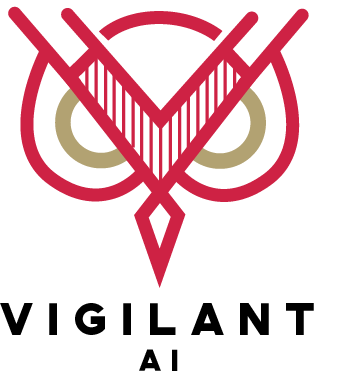The audit world has already surfed the first few waves of digital transformation. What started as a human-centred industry is increasingly embracing new technologies, processes, and approaches to auditing that will reshape the role of the auditor of the future.
As the volume of corporate data has grown each year, auditors have been constrained by the time, cost, and resources required to read, review, and extract terms and fields from business process source documentation. The resulting bottleneck has led to less complete and lower-quality audits and a continuing risk to both the firm and the client.
Fortunately, new platforms are creating opportunities for auditors to use more of the data available to them. Instead of being limited by how much data they can review before the deadline, auditors will be able to access and review the data they need to perform a better, more accurate, complete, and independent audit – all without increasing the cost to the client.
Transitioning to a Data-Driven Audit
The volume of structured, semi-structured, and unstructured data has exploded in recent years. Across industries, organizations have been turning to big data and analytics to improve operational efficiency, provide better customer service, and enhance strategic decision-making.
Auditors have also started to turn to data analysis. A recent Deloitte survey found that 64 percent of external auditors had adopted data analytics technologies, primarily to improve efficiency and to deliver a more effective audit.
At the same time, clients are demanding that audit firms build out their capabilities. The same survey found that 89 percent would like to see greater adoption of technology tools in the external audit process.
The latest AI-driven audit tools, such as MindBridge and Caseware DAS, now allow auditors to conduct risk assessments on 100 percent of the accounting entries before the audit begins. However, the review of the necessary supporting business process source documentation (also known as unstructured data) has largely remained a manual and time-consuming process that impacts the completeness and quality of the audit.
This inability to review business process documentation, particularly in a timely fashion for the most materially significant transactions, has meant that only a small part of the problem of audit quality and completeness has been solved. Auditors need automated document extraction and review tools on par with the AI-driven structured accounting analytics tools developed over the last 10 years. This requires a data-driven approach that embraces all the data, not just the accounting entry data.
Intelligent data management platforms are overcoming these challenges by automating the review of critical source documentation against the selected sample. Using OCR and machine learning we extract, tag and link all required business process documents against every accounting entry selected for review. Auditors can then quickly locate, and review, the extracted terms from those documents to test for any desired accounting use case.
Instead of being held back by the volume of data, auditors can quickly confirm a larger set of transactions, and focus in on areas of both statistical and material relevancy.
Download the Transitioning to Data-Driven Auditing_ A Practical Guide for Audit Firms
Achieving Continuous Auditing
By overcoming the challenges associated with managing and automatically reviewing large volumes of structured and unstructured data, auditors can simultaneously begin to lay the groundwork for continuous auditing.
Rather than relying solely on the traditional quarterly, half-yearly, or annual audit cycle, continuous auditing examines accounting practices, risk controls, compliance, and business processes on an ongoing, near-real-time basis.
A fully contextualized data lake creates a single, unified source of truth that is available to auditors year-round. As long as the client is sending data, the auditor can continuously review it. This allows for a more efficient deployment of resources, alleviates time pressure imposed by deadline-driven audits, and ensures a timely detection of material misstatements as they occur.
Delivering Additional Services to Clients
The benefits of an intelligent data management platform do not end at the conclusion of the audit engagement. Having the financial and source documentation in one place makes it easier for other divisions to reuse the data and provide a variety of auxiliary services to the client depending on their business including such services as cost recovery audits, forensic analysis, or end-of-month account reconciliation.
For example, corporate accountants using an analytics platform such as MindBridge (link) to identify anomalous transactions, could now automatically link in supporting business process documents to speed the confirmation of potential fraud, or material misstatements before they happen.
Compliance teams can link all documents associated with large transactions to ensure the company has met its regulatory requirements, especially when dealing with international or cross-jurisdictional transactions.
Consultancy teams can come up to speed on the business and its processes more quickly to provide more immediate and deeper strategic analysis and recommendations.
Likewise, in cases where the client owns the platform, the ability to repurpose the same data lake makes the Office of Finance more audit-ready and more prepared for any type of internal analysis.
Finally, the data lake also serves as a necessary stepping stone toward the introduction of large language models and other AI tools that require a centralized repository of correlated and organized information. (Link to blog on that later …)
Becoming the Auditor of the Future
The auditor of the future envisions a world where the amount of data review required before the audit is no longer constrained by cost, time, and resource requirements.
It is a world where the collection, review, and processing of critical business process documentation becomes more automated, efficient, and complete, allowing auditors to focus on the most complex and significant transactions without being overwhelmed by the amount of available data.
With an intelligent data management platform built on a fully contextualized data lake, the auditor of the future will be able to take a data-driven approach to audits, move toward continuous auditing, and provide higher quality services to clients at the conclusions of the audit engagement.



Recent Comments